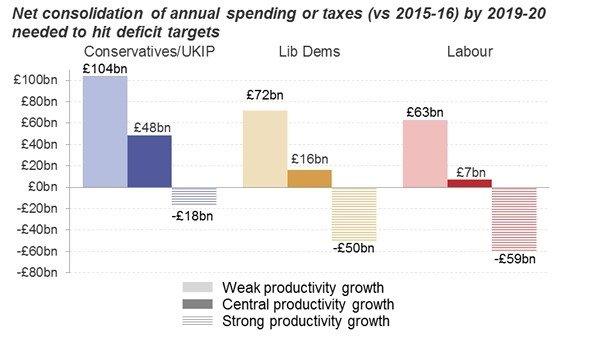Productivity is almost everything
- Published
- comments
Uber taxi driver Riz tells the BBC's Robert Peston he is working fewer hours for the same pay
In the Today Prog's Christmas Mastermind of 10 weeks ago, I notoriously - and typically - forgot that just a few weeks earlier I had written that improving the UK's lacklustre productivity performance is central to improving almost everything that matters in the UK economy.
Maybe it is a good thing that I don't take myself so seriously that I can actually remember my own analysis. Or perhaps not.
Anyway, even though I characteristically could not recall my publicly stated views, I have just repeated those views on the News at Ten (and you can see their visual representation here).
The argument is a simple one: productivity, or output per hour and worker, fell from annual improvements of roughly 2% a year before the Great Crash, to more-or-less zero since 2010; that stagnation is a big reason why wages have been so stagnant over the past few years; and it also explains why income tax revenues have failed to improve as expected in spite of a reasonably robust economic recovery.
Or to put it another way, if productivity growth does start to pick up - and the Bank of England's governor thinks we may at last be about to see some kind of productivity renaissance - we will all start to feel quite a bit better off.
And, to be unimaginatively topical for a moment - with the budget just two days away - the government's excessive deficit would diminish a good deal faster than it currently expects.
Targets
As it happens, the Resolution Foundation has today published some work showing quite how much productivity matters to the magnitude of cuts necessary to restore the health of the public finances.
The chart below says it all. It shows for example that if productivity were only to grow on average at 0.5% a year during the life of the next parliament, the Tories would have to make spending cuts or increase taxes by £104bn - roughly double their current plans - to hit their deficit reduction target.

But if productivity could be boosted to 4%, a Tory government would actually have £18bn to give away, in the form of tax cuts or greater public spending.
And for Labour, whose deficit targets are less demanding than the Tories, a significant revival in productivity growth would generate almost £60bn for additional spending or tax reductions.
Ditch austerity?
So to state the bloomin' obvious, the big thing that any new government needs to do to restore the health of the public finances is to organise a step-change improvement in output per worker.
Surely therefore any government should simply ditch austerity and go for measures to promote productivity.
The problem is that what's required to do just that is fairly unpredictable in terms of outcome and very long-term in effect.
For example, the skills of British people would need to be enhanced - which would require little short of an education revolution.
And the City would have to be better at channelling money to businesses with potential and killing off the dogs. But this would require the City to abandon its short-termist approach to investment, which has been dreamed of by governments of all shades and colours for decades, and never delivered.
Taking a punt
Then there is the hideous Catch 22 of business leaders' attitudes.
Which is that austerity may in fact be less effective in fixing the deficit than is widely believed. But if business leaders believe that austerity is the sine qua non of public finance redemption, they won't invest if they fear the public sector is being too profligate - and that would keep productivity performance pretty lacklustre.
Or to put it another way, any government that counted on productivity growth alone to sort out a fiscal mess (with no tax rises or spending cuts at all) would be taking a punt. And if it lost the bet the pain - in the form of a national debt spiralling out of control - would be felt by all of us.
That said, it would be a pretty foolish government that neglected to take any steps to improve productivity. And calibrating the balance between austerity and productivity-enhancing measures is perhaps the most important judgement for the next government. If we could only boost productivity, there would be no need to ink in any more austerity in Wednesday's budget. So how on earth do we improve output per worker?